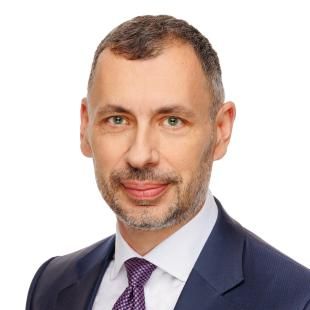
When Global Offensive player Nikhil “Forsaken” Kumawat was caught cheating at the Extremesland 2018 Asia Finals, he was banned from all esports-related activity for five years by the Esports Integrity Coalition (ESIC).
“It is always desperately sad when something like this happens in esports, but this case is particularly disappointing as we have previously shown compassion and consideration for Kumawat in our prior dealings with him,” said Ian Smith, ESIC’s Integrity Commissioner. “Additionally, he has caused great damage to Indian CS:GO and esports and devalued an excellent competition. There is no place in esports for cheats like Kumawat and, at a personal level, I hope we never see him back in CS:GO or any other game again.”
Some believe the sanction was lenient. Others think it was excessive. Wherever one stands on the scale, it is clear is that doping has many faces, and is no longer limited to traditional sports.
Esports – popularity and threats
Esports is one of the most rapidly developing sectors of entertainment. Revenues generated by game organisers are predicted to reach USD 1.8bn in 2022 1 . The Polish e-league is reaching new heights, as shown in the growth of events such as the Intel Extreme Masters – the unofficial esports world championships – which has been held in Katowice for the past 13 years and was watched by around 232 million online viewers in 2019.
But similarities to traditional sports are not limited to emotions, popularity and business growth – they both suffer from unfair practices. In esports, these include “e-doping”, a manipulation of the game outcome against fair play rules that increases the chance of winning for a given player. How ready is the law for these practices, and what can esports organisers do to protect themselves against the cheats?
E-doping – traditional and digital
E-doping has many faces. Some of its variations resemble traditional doping, while others exist only in cyberspace.
Online users, just like regular athletes, may use pharmaceuticals to “support” their game. But e-doping aims to affect intellectual efficiency, not just physical fitness. In 2015, one well-known US player revealed that his team had been taking drugs during an esports tournament to help them concentrate, react quickly and reduce fatigue. In response, one of the largest esports leagues, ESL, is cooperating with the World Anti-Doping Agency (WADA) to introduce a special anti-doping policy for esports tournaments.
An equally prevalent form of e-doping uses computers, not chemicals. By hacking a game’s underlying software in order to alter its source code or object code, the e-doper takes control of the program to determine the winner. This practice is the esports equivalent of regular athletes taking banned substances – but in this case the malicious “injections” are prohibited fragments of computer programme code.
Here, however, the law appears to have risen to the challenge. The Polish Act on Copyright and Related Rights 2 (Copyright Law) sets out the scope of the author’s economic copyright to the computer program, and prohibits any changes to the structure or modifications of the computer program without the consent of its copyright holder. This will usually be the game organiser, who acquires the economic copyright from the author. This type of e-doping might simply infringe its economic copyright, and therefore constitute a basis for several legal claims against the infringer, including claims for a redress of damages suffered by the game organiser as copyright holder.
Legislative moves
Legislators are taking steps to combat e-doping. The Polish legislator, for example, has extended the definition of “sport”, in the Act on Sport 3 , to a competition based on intellectual activity. This means the definition now includes esports and it has opened the door to combating doping in the digital world. The Polish Act on Combating Doping in Sport 4 (Antidoping Law) does not include any specific e-doping regulations, but it identifies the use of prohibited substances and prohibited methods as doping in sport. Although the Antidoping Law applies to doping in sport and therefore should affect esports (as a type of sport) as well, it does not include any penal provisions concerning the use of prohibited substances or methods. This leaves the Polish Anti-Doping Agency as the competent authority to define disciplinary rules on doping in sport.
The future of the regulatory framework for e-doping is yet to be determined, but the example of South Korea – where the culture of esports is much more developed – may be a useful guide. South Korea has already introduced dedicated legal acts that precisely regulate the responsibility for e-doping. The South Korean government established the Korean Esports Association in 2000, which regulates esports tournaments and introduced a log-in system to link virtual accounts to real persons to ensure responsibility for criminal acts. For instance, boosting for profit is punished by imprisonment with labour for not more than two years or by a fine not exceeding 20 million won (around USD 18,000) under the Game Industry Promotion Act 5 .
Conclusions for esports organisers
Because e-doping is always a violation of moral principles, but not necessarily legal ones, esports companies, and especially game organisers, should include appropriate provisions in their regulations. By-laws should clearly indicate that certain types of e-doping may constitute not only a breach of fair play rules leading to expulsion from the game, but also a copyright infringement. While the Act on Sport recognises esports, the Antidoping Law does not refer explicitly to an electronic form of doping, and this may cause problems concerning the liability for these actions under Polish law.
Creating an efficient procedure and system for banning the infringers may help significantly, not only in ongoing cases of violations, but also in preventing future incidents. Taking this kind of clear step towards making esports as clean and competitive as possible would help protect the brand reputation of many esports companies and tournament organisers.
To learn more on the same topic, visit the below pages:






